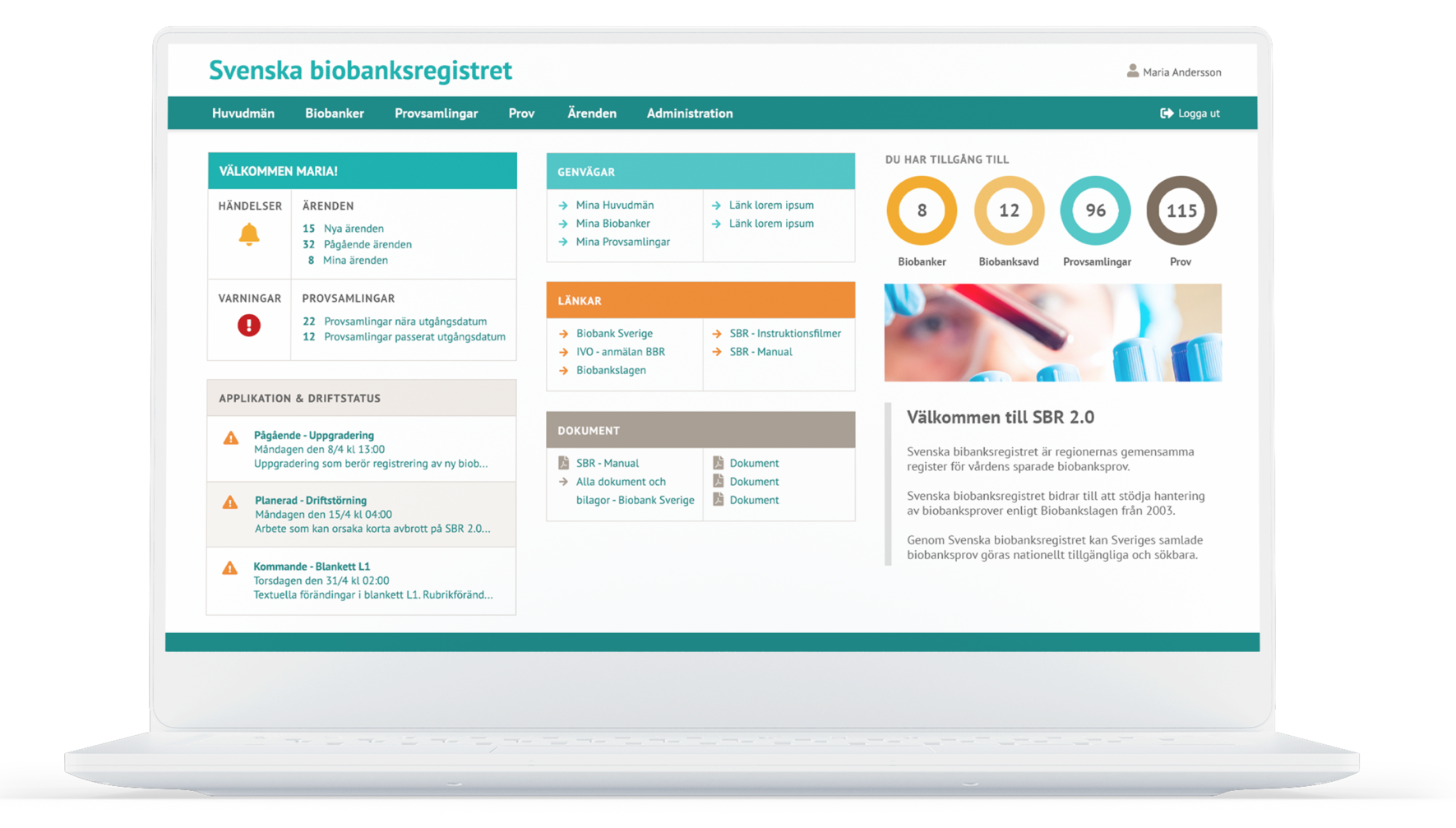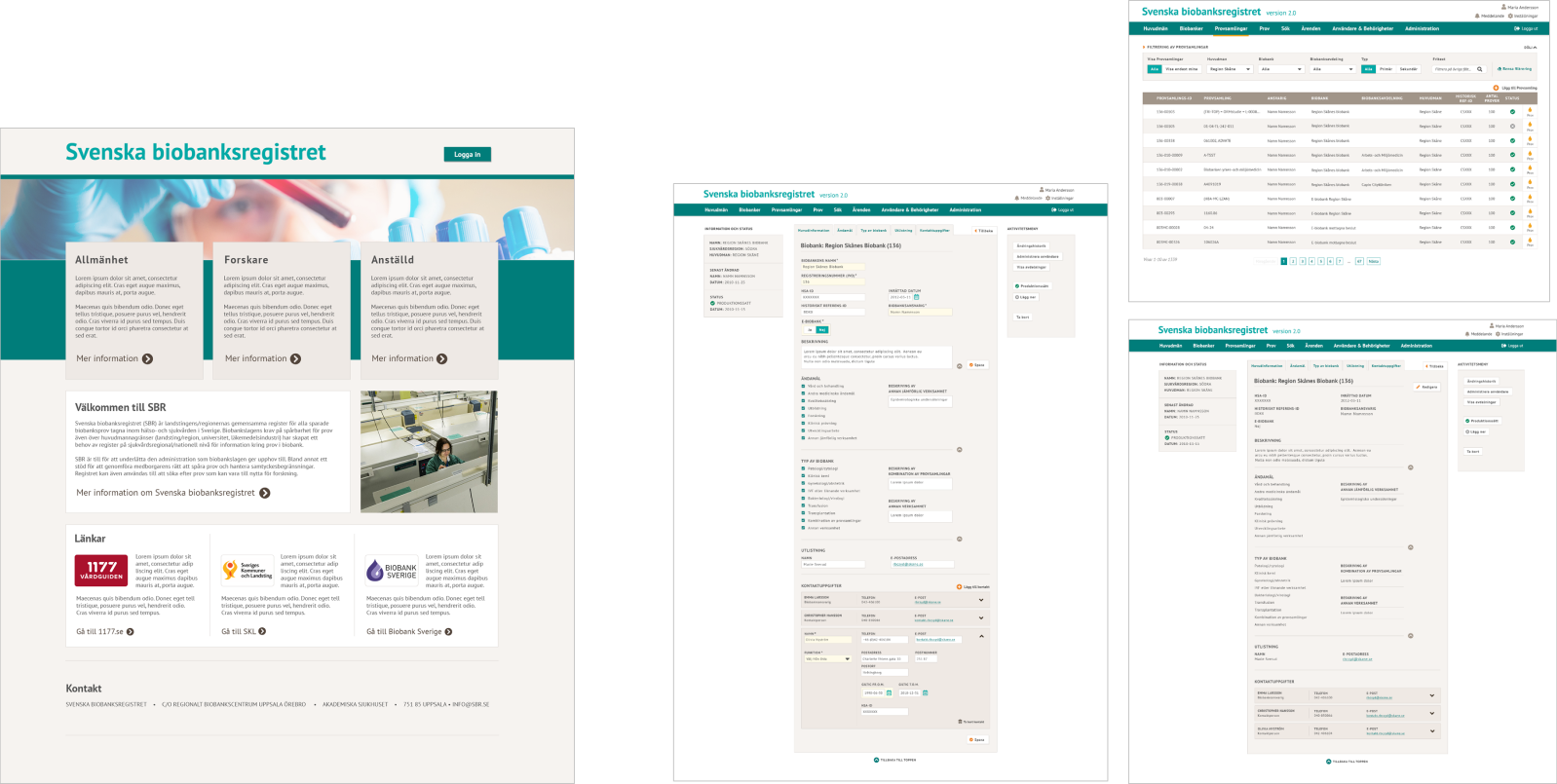Inera
Sr. UX/UI designer, UX researcher, Graphic designer
At Inera, Julia served as the senior UX/UI designer and UX Researcher for the Swedish National Biobank register IT-System. She led the UX/UI design, developed advanced data input and search tools, and ensured WCAG compliance to improve accessibility. Julia conducted A/B tests and user testing to refine usability and reduce user errors. She regularly presented designs and facilitated workshops with representatives from all 21 regions of Sweden, ensuring the design met diverse user needs. Her work was marked by effective collaboration, achieving accessibility compliance, and maintaining usability.

ROLES
UX/UI Designer
UX Reseacher
Graphic designer
TOOLS
Photoshop
METHODS/PROCESSES
Creative workshops
Ideation workshop
Agile/Lean
A/B test
OTHER
Micro copy
Icon illustrations
Design dokumentation
E-learning
The Swedish national biobank register
Svenska biobanksregistret (SRB)
As Senior UX/UI designer and researcher for the Swedish national biobank register application, catering to specialized target groups like researchers, laboratories, and healthcare staff across Sweden’s 21 regions. Julia led the UX/UI design and developed advanced data input and search tools to help researchers and healthcare professionals easily submit, search for and interpret complex biobank data. She ensured the product’s availability and accessibility by adhering to WCAG compliance standards and conducted a comprehensive accessibility audit that improved the usability. Julia managed A/B tests and user testing to refine usability, flow, and design, launching a series of usability tests that identified key pain points and led to reduction in user errors. She regularly presented designs and facilitated workshops with representatives from all 21 regions of Sweden, ensuring the design met the diverse needs of users. Julia’s work at Inera was marked by effective collaboration, balancing diverse needs, achieving accessibility compliance, and ensuring data security while maintaining usability.


Challenges
Balancing Diverse Needs
Ensuring the application met the varied requirements of researchers, laboratories, and healthcare staff across 21 regions was a significant challenge. This required extensive user research and iterative design processes.
Usability and Data Security
Ensuring the security and privacy of sensitive biobank data while maintaining usability was a critical challenge that required close collaboration with all of the 21 regions stakeholders.
Effective Collaboration
Facilitating workshops to gather feedback for research and ensure the design met the diverse needs of users across all 21 regions was a significant challenge.
Accessibility Compliance
Achieving full WCAG compliance involved overcoming technical and design hurdles to ensure the application was accessible to all users.
Outcome
Enhanced Data Interpretation
The new data visualization tools significantly improved the ability of researchers and healthcare professionals to interpret complex data.
Reduced User Errors
The usability testing initiative led to a reduction in user errors, enhancing overall user satisfaction.
Collaborative Vision
Successfully facilitated workshops and presentations, ensuring the design met the diverse needs of users across all 21 regions.
Improved Accessibility
The accessibility overhaul resulted in a more inclusive application, meeting WCAG compliance standards and improving the usability.